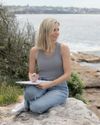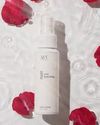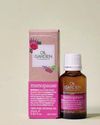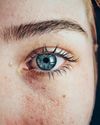
Many beauty brands are stepping up their game when it comes to offering organic, sustainable products that are non-harmful to humans and Mother Earth. While this is encouraging, there are many cosmetics that still contain harmful ingredients along with brands using misleading information, "greenwashing" to entice consumers to purchase their products. Research shows that there are certain ingredients still commonly used in many cosmetics that could negatively impact hormones and the endocrine system, a woman's ability to conceive, the nervous and immune systems, topically irritate eyes and skin and even have detrimental effects on the health of a developing baby. While this may seem worrying, beauty brands need to step it up when it comes to minimising the footprint they are leaving. From excessive plastic packaging to chemical runoff that enters waterways and impacts flora and fauna, choosing sustainable brands is a must if you want to protect the planet. Learning how to decipher labels and become your own beauty detective will give you the confidence you need when purchasing beauty products, knowing that they are in support of both yours and the precious planet's health.
6 known nasties to avoid
Often beauty products are applied daily meaning the exposure to potentially harmful ingredients is high and cumulative. The first place to start with your detective work is knowing which ingredients are in your products and which to certainly avoid. Here are six known nasties that should be avoided.
Phthalates
Phthalates are chemicals used to make plastic more flexible and are commonly found in body wash, hair care products, nail polish, colognes, perfumes, soaps, shampoos and even in the coatings of particular medications.
This story is from the Issue 204 edition of WellBeing.
Start your 7-day Magzter GOLD free trial to access thousands of curated premium stories, and 9,000+ magazines and newspapers.
Already a subscriber ? Sign In
This story is from the Issue 204 edition of WellBeing.
Start your 7-day Magzter GOLD free trial to access thousands of curated premium stories, and 9,000+ magazines and newspapers.
Already a subscriber? Sign In

YOGA FOR IMPERFECTION
Life is messy and we all make mistakes, but by embracing imperfection, we can begin to accept all parts of ourselves.

Creating the foundations of ritualist self-care
As a busy mum of a three-year-old and expecting another baby, finding time for self-care often feels like a luxury.

Are you doom spending?
If \"doom spending\" has become your go-to for coping with stress, you could be making withdrawals from not just your bank account, but your health too.

THE POWER OF music
Most of us enjoy music. But science shows music is central to being human and its effect on us is far more astonishing and impactful than we realise. Music is fundamental to life.

SYNTHETIC FOODS
Synthetic, or genetically modified, fake meats and the like attempt to mimic real meat in both looks, taste and texture. But how much do we really know about the production process and how do they affect the environment and our bodies?

Embracing the power of nature
Menopause is more than just a biological change, it represents a significant life stage that can present numerous challenges - from hot flushes and mood swings to fatigue and sleepless nights.

Jan Fran
From a young age, Jan Fran's deep curiosity and keen interest in social issues sparked her journey into the world of journalism. As an accomplished journalist, media commentator and broadcaster, Fran's passion for storytelling has always been driven by a desire to explore, question and shed light on the world around her.

Helping teen girls thrive
Statistics reveal that many more teen girls are struggling with mental health issues. What's going on with them? More importantly, what can we do to help them flourish?

Your ageing eyes
Your eyes work hard for you every waking minute. It is no surprise that how your eyes age will be determined by how you protect them. Eating the right foods can go along way towards ensuring that your eyes stay healthy for a lifetime.

The bottom line
During the Couid pandemic, we were shocked to see people fighting in supermarkets over toilet paper and to see empty shelves that had once held roll after roll. The reasons behind the run for toilet paper during this time reflect the unique place that it holds in our psyche and are deeply rooted in our history.